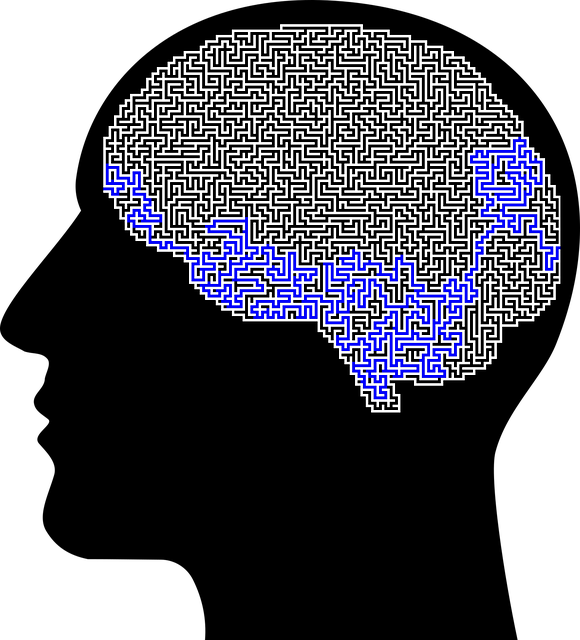In today's fast-paced world, mental wellness is a paramount concern driving interest in therapeutic interventions like Castle Rock Cognitive Processing Therapy (CRCPT) and Mental Wellness Coaching. CRCPT helps individuals identify and challenge negative thought patterns, reshaping their cognitive landscape. Integrating CRCPT with mindfulness meditation, conflict resolution techniques, and evidence-based stress reduction methods equips people to face life's challenges head-on, promoting lasting mental wellness. A robust coaching program should incorporate CRCPT to target negative thoughts, enhance resilience through practical skills, and foster cultural sensitivity for diverse needs, ultimately empowering participants with emotional well-being and tools for long-term mental health.
Mental wellness coaching is emerging as a vital support system, addressing the growing need for personalized well-being solutions. This article explores the development of effective coaching programs, focusing on innovative approaches like Castle Rock Cognitive Processing Therapy (CRCPT). We’ll delve into strategic program design, highlighting key components essential for success. From understanding client needs to implementing sustainable change, learn how CRCPT can empower individuals, fostering resilience and improved mental health outcomes.
- Understanding Mental Wellness Coaching: A Growing Need
- Castle Rock Cognitive Processing Therapy: Unlocking the Potential
- Developing a Comprehensive Coaching Program
- Implementation and Support for Sustainable Change
Understanding Mental Wellness Coaching: A Growing Need

In today’s fast-paced world, mental wellness is a paramount concern for individuals across various demographics. This growing need has sparked a corresponding interest in therapeutic interventions that foster emotional resilience and overall well-being. Mental Wellness Coaching emerges as a dynamic approach, offering support and guidance to help individuals navigate the complexities of modern life. It goes beyond traditional therapy by focusing on empowering clients with practical skills and strategies for managing stress, anxiety, and other mental health challenges.
One effective therapeutic model that complements mental wellness coaching is Castle Rock Cognitive Processing Therapy (CRCPT). This innovative therapy helps individuals identify and challenge negative thought patterns, ultimately reshaping their cognitive landscape. By integrating CRCPT with mindfulness meditation and conflict resolution techniques, coaches can facilitate profound changes in clients’ emotional responses and decision-making processes. Moreover, teaching evidence-based stress reduction methods ensures individuals are equipped to face life’s challenges head-on, promoting lasting mental wellness.
Castle Rock Cognitive Processing Therapy: Unlocking the Potential

Castle Rock Cognitive Processing Therapy (CRCPT) is a transformative approach that empowers individuals to overcome mental health challenges and unlock their true potential. This therapy focuses on identifying and modifying negative thought patterns, helping clients develop healthier cognitive processes. By addressing underlying beliefs and emotions, CRCPT enables people to manage stress, improve emotional regulation, and enhance overall well-being.
The effectiveness of CRCPT lies in its ability to tailor strategies to individual needs, ensuring cultural sensitivity in mental healthcare practice. This personalized approach allows for a deeper exploration of personal experiences and promotes healing. Moreover, integrating CRCPT into organizational settings, such as through Stress Management Workshops, can foster a more supportive work environment, benefiting employee emotional regulation and productivity.
Developing a Comprehensive Coaching Program

Developing a comprehensive mental wellness coaching program involves integrating various evidence-based therapies and techniques. Castle Rock Cognitive Processing Therapy (CRCPT), for example, focuses on identifying and modifying negative thought patterns, which can significantly improve an individual’s mental health. By incorporating CRCPT into the coaching curriculum, participants learn to navigate through challenging situations with greater resilience.
The design of a Mental Health Education Program should prioritize not just therapy but also practical skills development. This includes teaching effective conflict resolution techniques and coping skills, empowering individuals to manage stress and adversity in their daily lives. Such programs should be tailored to meet diverse needs, ensuring that participants leave with enhanced emotional well-being and practical tools for maintaining mental wellness over time.
Implementation and Support for Sustainable Change

Implementing mental wellness coaching programs requires a structured approach to ensure sustainability and positive change. One effective method is integrating Castle Rock Cognitive Processing Therapy, which focuses on identifying and modifying negative thought patterns. This therapy helps individuals develop healthier cognitive processes, thereby improving their emotional well-being. By teaching clients practical conflict resolution techniques, coaches can empower them to navigate challenging situations with increased resilience and a more positive mindset.
Support systems play a pivotal role in fostering long-term behavioral changes. Healthcare providers can contribute by undergoing cultural competency training to better understand and address diverse client needs. This enables them to offer tailored coaching that resonates with different backgrounds and experiences, enhancing the overall effectiveness of the program. Sustaining these initiatives requires ongoing collaboration between coaches, healthcare providers, and clients, ensuring a supportive environment for emotional well-being promotion techniques to take root and flourish.
Mental wellness coaching programs, such as those inspired by Castle Rock Cognitive Processing Therapy, are transforming lives. By addressing a growing need for mental health support, these programs offer comprehensive strategies for sustainable change. Through evidence-based techniques and tailored approaches, coaches empower individuals to unlock their potential and navigate life’s challenges with resilience. With proper implementation and ongoing support, the benefits of mental wellness coaching can reverberate through all aspects of an individual’s life, fostering a healthier and more fulfilling future.














